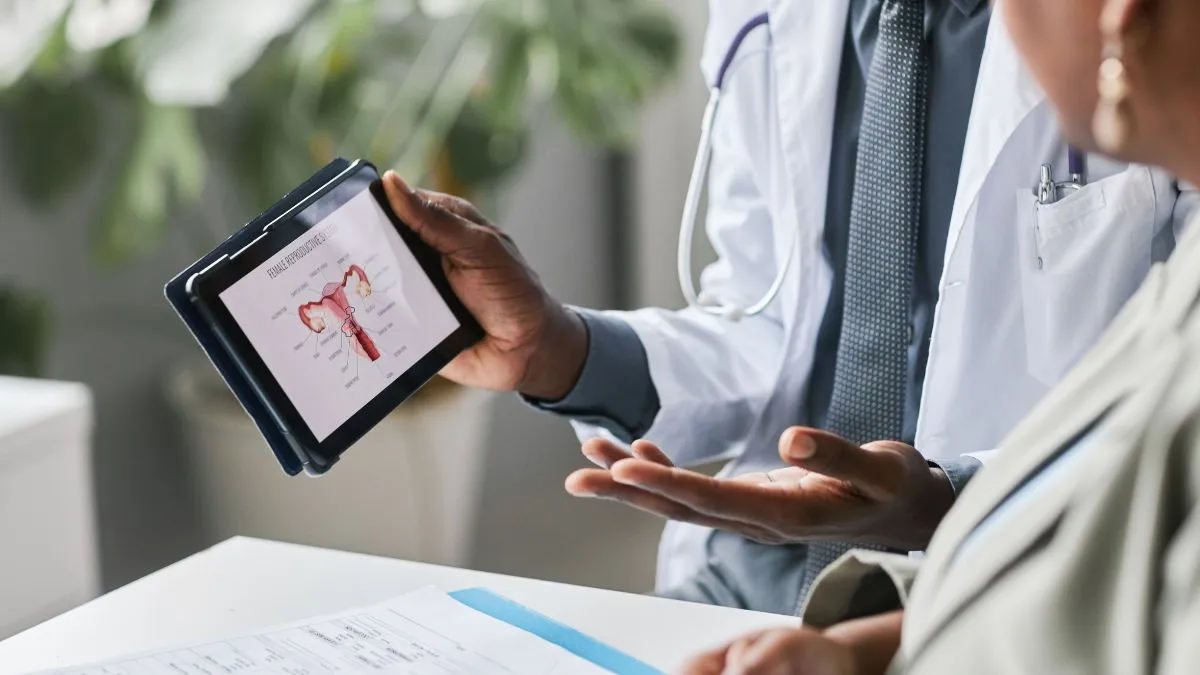Being a woman is hard enough in today’s world. Society, careers, families—women face struggles in every aspect of life, many of which are silent and endured alone. Hidden behind the lives that many women lead today are underlying reproductive issues.
These issues are crucial to address, as they impact the overall health and well-being of women, often leaving them questioning their womanhood. In a conversation with Jagran English, Dr. Lipsa Mishra, a Fertility Specialist at Birla Fertility & IVF in Bhubaneswar , spoke about "What Are the Overlooked Reproductive Health Challenges Most Women Face and Why It’s Time to Prioritise Your Well-Being?" Raising Awareness And Breaking The Stigma To actively promote reproductive health among women, raising awareness and breaking the stigma surrounding it is of utmost importance.

Women can only feel empowered to take control of their bodies and make informed decisions about their well-being when they have the right knowledge. This includes not only an understanding of reproductive health but also awareness of hidden reproductive challenges that most women tend to ignore due to limited information. Early Signs — Puberty And Menstrual Issues The body begins developing reproductive capabilities at puberty.
The earliest signs of reproductive health issues can often be detected at this stage. Early or delayed puberty can indicate possible hormonal or developmental concerns. Most women tend to ignore these signs, but they can lead to larger issues later in life.
Another commonly overlooked sign is painful periods. While menstrual cramps can be normal, extreme or immobilizing pain is a common indicator of underlying conditions. In many cases, it turns out to be a symptom of endometriosis—a condition where the tissue that normally lines the inside of the womb (the endometrium) grows outside it.
The most common symptoms of endometriosis are extremely painful and irregular periods. It is also responsible for infertility in nearly 30% of cases. In severe cases, it can significantly hinder the chances of conception.
Also Read: Why Women Are More Prone To Osteoarthritis, RA As They Age? Know From An Expert Similarly, heavy or irregular bleeding during periods should not be ignored, as these could be symptoms of polycystic ovary syndrome (PCOS). PCOS is a hormonal condition where a woman develops enlarged ovaries with small cysts on the outer edges. It causes the production of excess male hormones, leading to symptoms such as hirsutism, obesity, and menstrual irregularities.
Uterine fibroids—non-cancerous growths in the uterus—can further complicate menstrual health and fertility. Women experiencing these symptoms must consult a healthcare provider for proper diagnosis and treatment. Ignoring them could lead to more serious complications in the future.
Beyond Menstruation: Other Reproductive Concerns Infertility, reduced fertility, and pregnancy complications are some of the more obvious signs of reproductive health issues. However, less obvious conditions like female sexual dysfunction—including lack of interest in sex or painful intercourse—can also indicate underlying problems. Experiencing perimenopausal symptoms such as hot flashes, mood swings, and difficulty concentrating before reaching the expected age may also be a sign.
Reproductive health is influenced by several crucial factors. One of them is body weight. Both excess and insufficient body weight can affect a woman’s ability to conceive.
Higher body weight can lead to infertility, recurrent pregnancy loss, and other reproductive issues. Being underweight can disrupt hormonal balance necessary for ovulation and conception. Maintaining an optimal body weight through a balanced diet and regular exercise is essential for promoting reproductive health.
Sexual health is also a key component of reproductive wellness. While good sexual health doesn’t guarantee fertility, it plays a supportive role. Untreated sexually transmitted diseases such as gonorrhea and chlamydia can lead to pelvic inflammatory disease (PID), an infection of the reproductive organs.
PID can cause infertility, blocked fallopian tubes, ectopic pregnancies, and other complications. Also Read: 4 Health Benefits Of Drinking Jaggery Water For Your Overall Well-Being Lifestyle And Environmental Impact Environmental and lifestyle factors significantly influence reproductive health. Unseen pollutants like phthalates (found in plastics), dioxins (by-products of industrial processes), and pesticides can disrupt menstrual cycles and ovulation.
Additionally, habits such as smoking, excessive alcohol consumption, chronic stress, and over-exercising can further impair reproductive health. Dr. Lipsa Mishra, Fertility Specialist at Birla Fertility & IVF in Bhubaneswar, emphasized the need to educate and empower women to prioritise their reproductive health.
These hidden challenges should not remain unspoken. By staying informed, seeking proactive medical care, and breaking the stigma, women can protect their well-being and fully embrace their potential..
Top

What Are The Overlooked Reproductive Health Challenges Most Women Face And Why It’s Time To Prioritise Your Well-Being? Expert Insights Inside

Reproductive Health,Women's Health,Fertility,Menstrual Health,PCOS,Endometriosis,Reproductive Challenges











